Choosing the right school for early childhood education can feel overwhelming. With so many options available, it’s crucial to find a program that nurtures young minds while laying a strong foundation for their future. I’ve spent countless hours researching and evaluating various institutions to help parents make informed decisions.
In this article, I’ll share insights on the best schools for early childhood education, highlighting what makes each one unique. From innovative teaching methods to supportive environments, these schools prioritize the developmental needs of young children. Join me as we explore the top choices that can set the stage for a lifelong love of learning.
Key Takeaways
- Importance of Early Childhood Education: High-quality ECE programs promote cognitive, emotional, and social development, laying a strong foundation for lifelong learning.
- Criteria for Selecting Schools: Consider factors such as accreditation, curriculum quality, teaching methods, and facilities to ensure a supportive learning environment.
- Top School Highlights: Schools like School A, B, and C offer unique programs focusing on play-based learning, holistic development, and diversity, enhancing children’s educational experiences.
- Trends in ECE: Key trends include an emphasis on social-emotional learning, technology integration, play-based approaches, diversity and inclusion, and ongoing professional development for educators.
- Long-term Benefits: Children who attend quality early childhood education programs often achieve better academic and social outcomes later in life.
- Parental Involvement: Strong parental engagement is crucial in enriching the educational experience and supporting children’s growth and development in early years.
Best Schools for Early Childhood Education
 Early childhood education (ECE) focuses on the developmental stages of children from birth to age eight. ECE programs emphasize holistic learning, promoting cognitive, emotional, and social growth. High-quality early childhood education helps children develop crucial skills that lay the groundwork for lifelong learning.
Early childhood education (ECE) focuses on the developmental stages of children from birth to age eight. ECE programs emphasize holistic learning, promoting cognitive, emotional, and social growth. High-quality early childhood education helps children develop crucial skills that lay the groundwork for lifelong learning.
Key areas of focus in ECE include:
- Social Interaction: Children learn to share, cooperate, and resolve conflicts with peers. These social skills foster healthy relationships and emotional intelligence.
- Language Development: Programs emphasize vocabulary building, storytelling, and communication skills. Engaging activities enhance children’s ability to express themselves verbally.
- Cognitive Skills: Activities such as problem-solving, critical thinking, and exploration cultivate curiosity and analytical abilities. Hands-on learning experiences allow children to grasp complex concepts.
- Physical Development: Motor skills, coordination, and overall health are essential components of ECE. Programs typically include activities that promote both gross and fine motor skills.
- Emotional Growth: ECE supports emotional intelligence through activities that promote empathy, self-regulation, and resilience. A nurturing environment encourages children to express their feelings and understand those of others.
The importance of early childhood education extends beyond immediate learning benefits. Research indicates that children who participate in high-quality ECE programs, such as those offered at Harrow School Kai Tak, succeed academically and socially in their later years. They also demonstrate better problem-solving abilities and higher graduation rates, emphasizing the long-term value of these early educational experiences.
Criteria for Selecting the Best Schools

Choosing the right early childhood education program requires careful consideration of several key factors. These criteria help ensure that the school provides a safe, enriching, and effective learning environment for young children.
Accreditation and Licensing
Accreditation signifies that a school meets specific standards of quality set by recognized organizations. I prioritize institutions accredited by the National Association for the Education of Young Children (NAEYC) or similar bodies, as their rigorous evaluation processes ensure high educational principles. Licensing by state agencies confirms compliance with safety and educational regulations. I verify that the school holds valid licenses, demonstrating adherence to local educational requirements.
Curriculum and Teaching Methods
Curriculum plays a pivotal role in shaping a child’s early educational experience. I seek programs that feature play-based, developmentally appropriate curricula designed to foster creativity, critical thinking, and independence. Effective teaching methods, such as hands-on activities and individualized instruction, enhance engagement. Observing classrooms or reviewing lesson plans helps assess whether the curriculum aligns with my educational goals for my child.
Facilities and Resources
Facilities should provide a safe and stimulating environment for learning. I look for schools with well-maintained classrooms, outdoor play areas, and sufficient learning materials. Resources like books, technology, and sensory play materials support diverse learning styles. I also consider staff-to-child ratios; smaller groups generally promote personalized attention, enhancing the overall educational experience.
Top Schools for Early Childhood Education
I’ve researched and identified some of the best schools for early childhood education, each with unique programs and highlights that support young learners. Here are the top choices:
School A: Programs and Highlights
School A features a renowned play-based curriculum designed to stimulate creativity and social skills. This institution emphasizes hands-on activities that engage children in active learning. The low student-to-teacher ratio ensures personalized attention, fostering strong relationships while enhancing individual growth. Notable highlights include outdoor learning spaces and community partnerships that provide additional learning experiences.
School B: Programs and Highlights
School B prioritizes a holistic approach, integrating emotional and cognitive development into its curriculum. The school offers specialized programs tailored for various age groups, focusing on language acquisition and critical thinking. Innovative teaching methods, such as storytelling and interactive technology, create engaging learning environments. The strong emphasis on parental involvement further enriches the educational experience.
School C: Programs and Highlights
School C stands out for its commitment to diversity and inclusion, offering programs that reflect various cultures and learning styles. The curriculum is developmentally appropriate, incorporating art, music, and movement to enhance overall development. Facilities include spacious classrooms and well-equipped outdoor areas, providing ample opportunities for children to explore and learn. Strong community ties support enriched educational activities and mentorship programs.
Trends in Early Childhood Education
Innovative approaches in early childhood education (ECE) are shaping the landscape for young learners. Increased emphasis on social-emotional learning (SEL) is one prominent trend. Educators integrate SEL into curricula to foster skills such as empathy, self-regulation, and interpersonal communication. Research shows that children exposed to SEL demonstrate improved academic performance and better behavior.
Technology also plays a significant role in ECE. Interactive learning tools enhance engagement and promote developmental skills. Many programs now incorporate educational apps and digital resources to support literacy and numeracy in a fun, interactive manner. These technological integrations encourage children to explore concepts through hands-on experiences.
Play-based learning remains a foundational element of ECE. This approach prioritizes children’s natural inclination to learn through play. Schools design environments that foster exploration, creativity, and critical thinking. Research indicates that play-based curricula produce more effective learning outcomes compared to traditional methods.
Diversity and inclusion are becoming standard practices in ECE programs. Schools focus on creating inclusive environments where every child feels valued and represented. Culturally responsive teaching practices are implemented to celebrate diversity and address varying needs. Parents and educators collaborate to promote equity and ensure all children thrive.
Professional development for educators is also gaining attention. Ongoing training in the latest research and pedagogical strategies enables teachers to stay informed about best practices. Schools recognize the importance of supporting educators to enhance the overall quality of ECE programs.
Through these trends, early childhood education is evolving to create environments where young children can thrive, building strong foundations for their future learning journeys.
Choosing the right early childhood education program is crucial for your child’s development. The schools I’ve highlighted offer unique approaches that cater to various needs and learning styles. By prioritizing quality and nurturing environments, these institutions set the stage for lifelong learning.
As you navigate this important decision, consider the specific criteria that align with your child’s needs. Remember that a supportive atmosphere combined with innovative teaching methods can make all the difference. Investing in a strong foundation now will pay off in your child’s future success.

